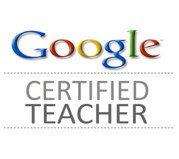Meetings=Drudgery?
In 20 years of teaching, I have attended my fair share of faculty meetings. I remember sitting in the meetings at my first job, listening to impassioned debates over whether or not to have a water cooler in the staff lounge and wondering, "Is this what adults do at work?"
I found out that the answer to that was, disappointingly, yes. This is how a lot of adults spend time in meetings. I have viewed faculty meetings, for the most part, as something to be endured, a necessary part of a teaching job, but not something exciting, enlightening or particularly useful or relevant to my work.
We Don't Need Reform, We Need New Forms
Our new (as of last year) head-of-school, Jon Mitzmacher is committed to new forms for the traditional faculty meeting. The first innovation he introduced was to begin & end every meeting on time. This is no small feat and brings into focus the question of how to best use that once-monthly hour when the whole staff is together in one place. Do we really want to spend that time discussing the proper way to staple papers to a bulletin board?

Even more importantly, Jon did away with the typical "administrivia." An agenda is shared with items of note listed at the bottom, and we are trusted to read these ourselves and clarify, if necessary, on our own.
This stems from a core value that I feel is game-changing, although it seems obvious and simple. Staff meetings should be devoted to the practices of teaching and learning. The goal is to model the type of learning culture we envision for all members of our community: reflective, differentiated, participatory, collaborative. Last year teachers took turns "hosting" the meeting. We had the opportunity to visit each other's classrooms and learn from one another.
New School Year~New Ideas
I was thrilled when, this year, I was invited (or maybe I invited myself) to brainstorm and participate in re-thinking the faculty meeting. My role at the school is evolving as we grow into a 21st century learning community, and I am working more in the capacity of a provider of professional development and coaching for teachers, so I think it makes sense.
The first meeting of this year featured a guest speaker, Dr. Elliott Rosenbaum of The American School of Professional Life Coaching. He did a wonderful presentation about "Active Listening" and then guided a role-playing activity. Everyone agreed that it was an excellent use of our faculty meeting.
For our next meeting, we decided to introduce the idea of "Ignite" presentations. In talks that are exactly five minutes long, Ignite presenters share their personal and professional passions, using 20 slides that auto-advance every 15 seconds. I wanted to show Jen Orr's "Encienda EduCon"presentation "What do you teach?" but I couldn't find a video online. Jen very generously agreed to Skype into our faculty meeting and recreate her presentation for us.
We have invited faculty members to present their own 5 minute talks at הצתה
(Hebrew for "Ignition"), which will be
the opening to future faculty meetings.
In the remaining time, each teacher was given a KWH (What do we KNOW, WANT to know, and HOW will we find out?) graphic organizer to begin preparing an implementation timeline for his or her professional development plan for the year.
What Else?
Here are some other ideas I'm thinking about--
•using TED talks (have a different teacher select the TED talk of the month to be shown at the meeting. Have teachers give their own TED talks (very similar to the Ignite model).
•I was very moved by the movie, Temple Grandin. There are some important messages in this movie for educators, and I would love to use parts of the movie as a catalyst for discussion about how we deal with different types of children. How do we, as teachers, either help them feel valued for who they are or misunderstood? An additional resource might be Temple Grandin's TED Talk, "The World Needs All Kinds of Minds."
•Watch a video of someone teaching then ask participants to "rate" the teaching or similar discussion starter of what constitutes "good" teaching.
• A "smack-down" where anyone shares a favorite resource. This is a really low-pressure way to introduce a shift in the culture toward one of sharing and openness.
•Guest speakers either in-person or via skype.
•Time for collaboration and reflection.
What are other schools doing during faculty meetings? What are your ideas for the best use of this time?






1 comment:
I love the ways your are re-thinking faculty meetings!
We too our rethinking faculty meetings, focusing on creative collaboration in order to improve teaching and learning. We are even renaming the time from "faculty meeting" to "breakfast and brainstorming".
At our last meeting/brainstorming session, I posed the question, "what would supervision and evaluation that truly leads to professional growth look like?" I sat back and listened with pride as teachers actively engaged in conversation in small groups and then shared back to the entire faculty. Their ideas were inspiring! Teachers long for more peer feedback and support and had many compelling thoughts about how to learn together. These conversations have continued in faculty leadership groups, grade level teams, as well as informally throughout the school. We will expand upon our thinking at our next faculty breakfast and brainstorming session(i.e. meeting), and these collaborative reflections will serve as the basis for innovation in supervision, evaluation, and ultimately professional learning and growth at our school. I think the shift in faculty meetings at our schools and many schools reflects a broader shift in the quest to become creative, collaborative professional learning communities. We've come a long way! Thanks for sharing!
Post a Comment